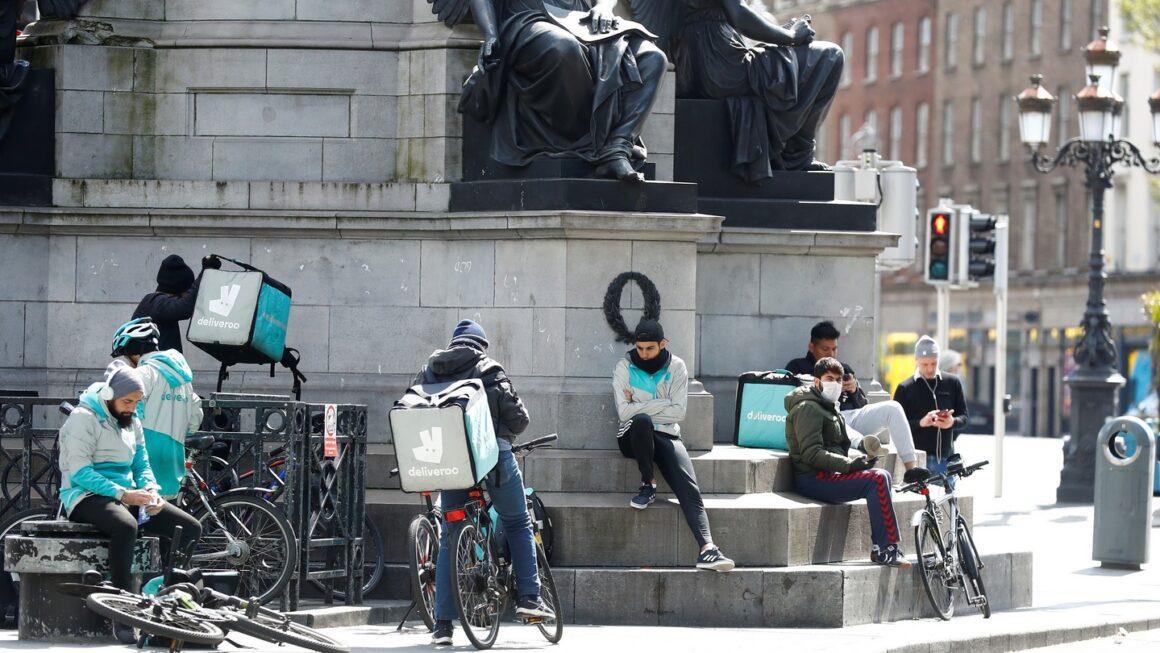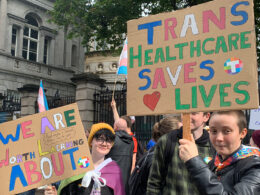By Enda Kelly
Reading about the experiences of food delivery riders is a revealing example of pure exploitation. Right now, Ireland’s minimum wage is €11.30, which falls far short of the living wage of €13.85 recommended by social justice Ireland (itself an underestimation of what is needed). Still, the apps these riders work for don’t even provide the minimum. According to Fiachra Ó Luain, co-founder of the English Language Students Union of Ireland, who works closely with delivery riders, on average, they earn €2.90 per delivery for one job that could extend to half an hour. This equates to riders earning around €6 an hour!
This is before expenses come out. These can run up to €150 a week for renting an account from someone else – due to many riders being on a Stamp Two visa, meaning they can legally not work for the companies. They also need to pay €100 a week to rent the electric bikes needed to do the job. So this meagre pay packet is even less in real terms.
Bogus self-employment
A large factor in this situation is that the riders are technically self-employed, meaning their well-being is not the company’s responsibility. Yet these same companies profit massively from the work these riders do. Just Eat Ireland posted a €14 million profit in 2021 and Deliveroo €1.1 million in the same year. When asked by The Irish Times to provide an average wage for drivers in Ireland a Deliveroo spokesperson refused to give such a figure – an odd thing to do if, as quoted elsewhere in the article, “Riders in Ireland always earn at least the national minimum wage plus costs for time spent on orders while working with Deliveroo.” Surely providing a figure would clarify any doubts about this, but we can draw conclusions.
Of course, low earnings are not the only problem. Violence is a common occurrence in most rider experiences. This has led to the creation of riders’ WhatsApp groups sharing lists of no-go areas. According to most of the drivers, the Gardaí have been largely useless in assisting them. One rider mentioned, “People have stopped counting on the Gardaí, because all the times you go to them, ask for help and support, they say they can’t do much”. The response by the Gardaí to the current focus on violence in Dublin has been an increased Garda presence, including a focus on immigration checks. Such an increase has led to concern among delivery riders, as many riders are immigrants, and there is a belief that they will lead to increased targeting by the police.
Racism in the Gardaí
Such a concern is understandable as the Gardai have been shown to have many biases. In 2021, YARI conducted a survey which revealed stark truths about racism among the Gardaí; one particular fact is that 35% of people of colour or Traveller have been stopped by gardai for no particular reason. So, this increase in presence is far more likely to put pressure on such riders than provide any sort of protection.
Having laid this out, what exactly is required for these workers? At a minimum, there is a need for a minimum wage of €17 an hour for workers in this sector and workers generally. Within this, there is also a need to ensure that Stamp Twp visas can open their own accounts. We need a ban on precarious employment via the mechanism of bogus self-employment. Similarly, more funding and the presence of Gardaí are not the solution to violence. Focusing on dealing with the real issues that perpetuate crime, poverty, and desperation will lead to safer situations for riders. This means investing in public housing, resources to treat drug addiction and public services generally.
Similarly, these delivery companies must be forced to provide full protection and safe working conditions for these riders. What is required is a unified struggle, including from other unions, to put pressure on the government and these companies to provide the protection these riders need.











